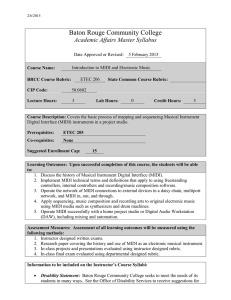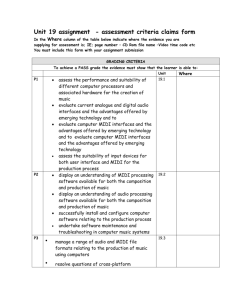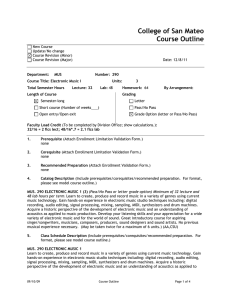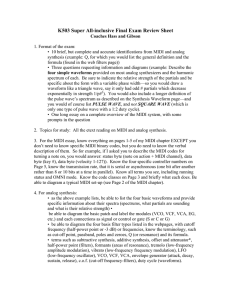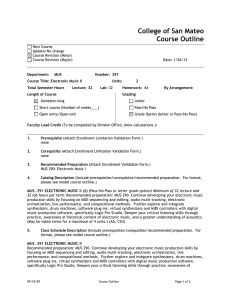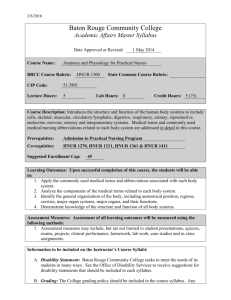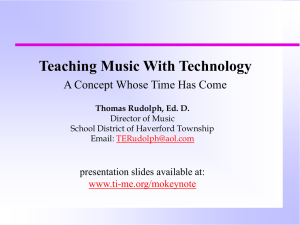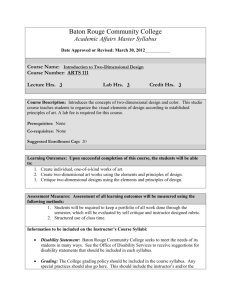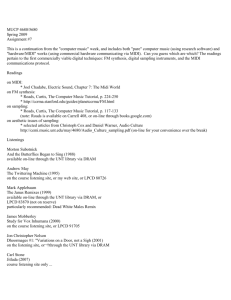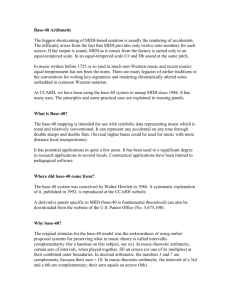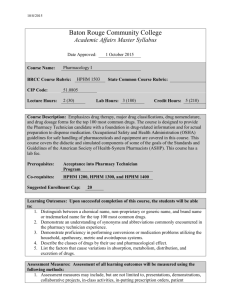ETEC206 - Baton Rouge Community College
advertisement
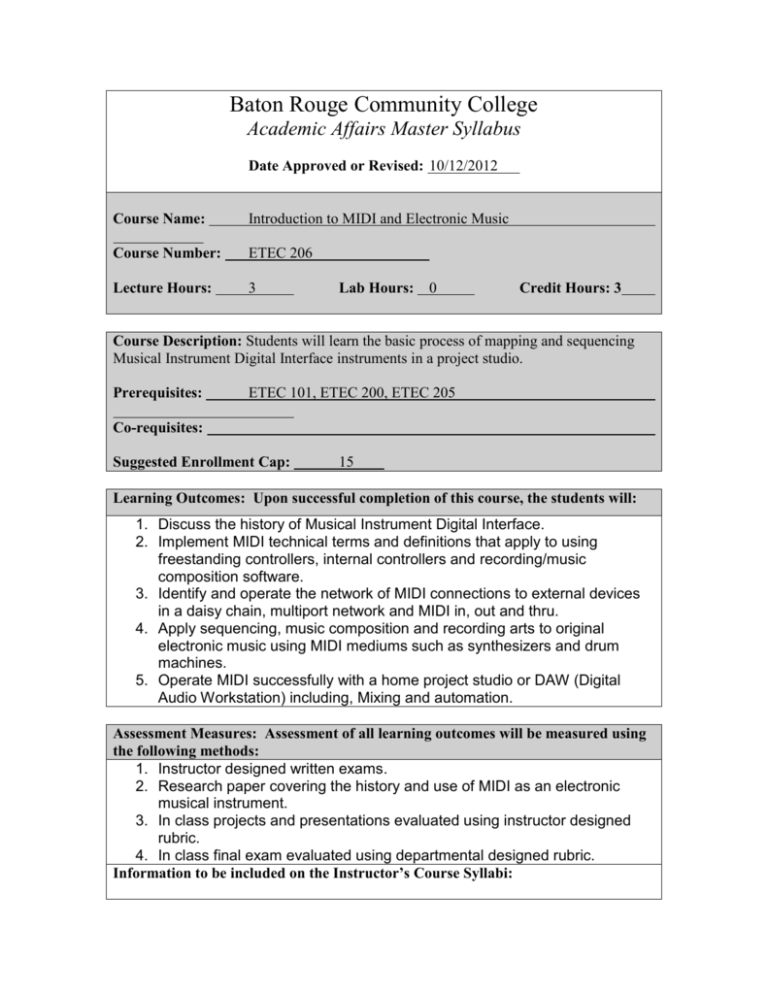
Baton Rouge Community College Academic Affairs Master Syllabus Date Approved or Revised: 10/12/2012 Course Name: Introduction to MIDI and Electronic Music Course Number: ETEC 206 Lecture Hours: 3 Lab Hours: 0 Credit Hours: 3 Course Description: Students will learn the basic process of mapping and sequencing Musical Instrument Digital Interface instruments in a project studio. Prerequisites: ETEC 101, ETEC 200, ETEC 205 Co-requisites: Suggested Enrollment Cap: 15 Learning Outcomes: Upon successful completion of this course, the students will: 1. Discuss the history of Musical Instrument Digital Interface. 2. Implement MIDI technical terms and definitions that apply to using freestanding controllers, internal controllers and recording/music composition software. 3. Identify and operate the network of MIDI connections to external devices in a daisy chain, multiport network and MIDI in, out and thru. 4. Apply sequencing, music composition and recording arts to original electronic music using MIDI mediums such as synthesizers and drum machines. 5. Operate MIDI successfully with a home project studio or DAW (Digital Audio Workstation) including, Mixing and automation. Assessment Measures: Assessment of all learning outcomes will be measured using the following methods: 1. Instructor designed written exams. 2. Research paper covering the history and use of MIDI as an electronic musical instrument. 3. In class projects and presentations evaluated using instructor designed rubric. 4. In class final exam evaluated using departmental designed rubric. Information to be included on the Instructor’s Course Syllabi: Disability Statement: Baton Rouge Community College seeks to meet the needs of its students in many ways. See the Office of Disability Services to receive suggestions for disability statements that should be included in each syllabus. Grading: The College grading policy should be included in the course syllabus. Any special practices should also go here. This should include the instructor’s and/or the department’s policy for make-up work. For example in a speech course, “Speeches not given on due date will receive no grade higher than a sixty” or “Make-up work will not be accepted after the last day of class.” Attendance Policy: Include the overall attendance policy of the college. Instructors may want to add additional information in individual syllabi to meet the needs of their courses. General Policies: Instructors’ policy on the use of things such as beepers and cell phones and/or hand held programmable calculators should be covered in this section. Cheating and Plagiarism: This must be included in all syllabi and should include the penalties for incidents in a given class. Students should have a clear idea of what constitutes cheating in a given course. Safety Concerns: In some programs this may be a major issue. For example, “No student will be allowed in the safety lab without safety glasses.” General statements such as, “Items that may be harmful to one’s self or others should not be brought to class.” Library/ Learning Resources: Since the development of the total person is part of our mission, assignments in the library and/or the Learning Resources Center should be included to assist students in enhancing skills and in using resources. Students should be encouraged to use the library for reading enjoyment as part of lifelong learning. EXPANDED COURSE OUTLINE I. II. III. IV. V. VI. VII. VIII. History of MIDI as it relates to multi-media MIDI Language Hardware Components Electronic Instruments Sequencing Digital Audio Production Groove Theory Editing
